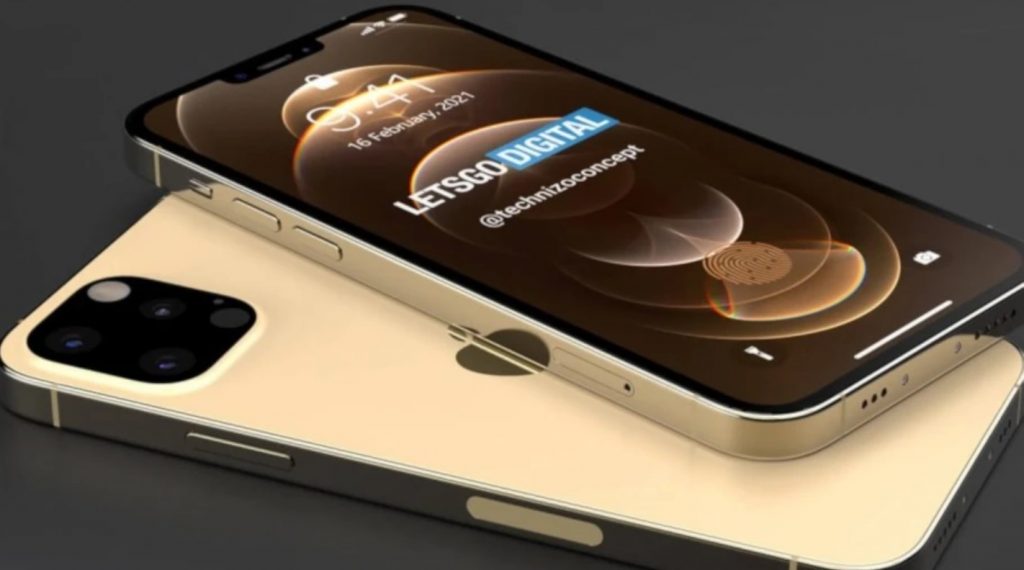
A little over a week ago we told you that Apple had filed model numbers for seven iPhone 13 handsets with the Eurasian Economic Commission (EEC). Those numbers were A2628, A2630, A2634, A2635, A2640, A2643, and A2645 and only seven units were accounted for. Even if Apple divvied up the four expected models (iPhone 13, iPhone 13 Mini, iPhone 13 Pro and iPhone 13 Pro Max) by U.S. and International units, the filing would be short one model number.
Last year Apple used A21xx for the iPhone 12 and iPhone 12 mini while the iPhone 12 Pro and iPhone 12 Pro Max had A23xx model numbers. International units employed A24xx numbers. This year, all of the iPhone 13 variants start with A26xx.
Apple plans to try a color option on the iPhone 13 line that it used back on 2013’s iPhone 5c
One possibility is that the iPhone 13 mini is being cut from either the U.S. or the international lineup. This wouldn’t necessarily be a surprise considering that during the first half of January, the 5.4-inch iPhone 12 mini was responsible for only 5% of total iPhone 12 sales. Or perhaps Apple is giving a certain feature to the iPhone 13 Pro Max globally that won’t necessitate dividing the unit into two different model numbers.
For example, if Apple were to equip the top-of-the-line 2021 iPhone 13 model with a higher end 5G modem,the gang in Cupertino might not need to differentiate it by U.S. and international versions. This would be a possible explanation for the filing of only seven model numbers with the EEC.
We’ve already learned much about what to expect from the iPhone 13 series and now it appears that everyone with a social media account is sharing photos of different iPhone 13 renders in Pink that reportedly will arrive later this year. Back in April, Apple added a purple version (known in some circles as “The Barney”) of the iPhone 12 and iPhone 12 mini.
This wouldn’t be the first time that Apple has offered a Pink handset. Back in September 2013, Apple offered a version of the iPhone 5c in Pink. Built with a polycarbonate shell instead of the aluminum body employed on the iPhone 5s, the iPhone 5c was a lower priced iPhone variant that was powered by the A6 chipset that had been employed by the previous year’s iPhone 5 model.
The goal of the iPhone 5c was to provide younger smartphone users and others unable to afford a new top-of-the-line iPhone with a more affordable option instead of buying an Android handset. While the iPhone 5s and 5c together set a record for iPhone sales during an opening weekend (for that time) sales of the iPhone 5s were three times those of the iPhone 5c. One of the reasons for the skewed sales was the less than premium look of the polycarbonate shell.
Already, we know that all four probable models will be powered by the A15 Bionic SoC that will be built by TSMC using its enhanced 5nm process node. The notch will be narrower and the Pro models will sport a 120Hz ProMotion display that updates 120 times each second. To save battery life, an LTPO backplane will be used allowing for a variable refresh rate based on content.
This year, Apple hopes to release all four iPhone 13 models at the same time
All four models will have a sensor-shift stabilization feature that eliminates shakiness in videos by adjusting the sensor of the camera instead of the lens. The batteries on the 2021 iPhone models will have larger capacities and if previous rumors are correct, the iPhone 13 Pro Max will be the first iPhone to sport a battery capacity over 4000mAh. And the iPhone 13 line will also feature improved camera specifications.
Unlike last year when the pandemic caused Apple to delay the release dates of the phones and stagger those dates, this year they could all be released in September.





























